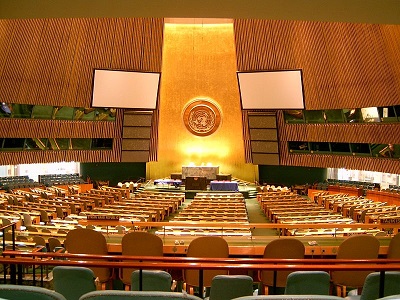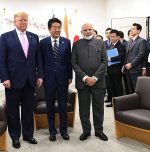India’s voting on Israel reflects a shift in the diplomatic approach

In a notable diplomatic move, India has voted in favour of a United Nations resolution condemning Israeli settlements in Palestine.
The resolution, targeting settlement activities in Occupied Palestinian Territory, received approval on Thursday.
However, the United States and Canada were among the seven countries opposing it, with eighteen nations choosing to abstain.
India’s evolving stance in the voting process of the United Nations reflects its shift to a diplomatic approach.
This decision follows India’s recent abstention from a UN resolution calling for an immediate and sustained humanitarian truce between Israel and Hamas in the Gaza Strip.
The war, sparked by the October 7 attacks on Israel, has resulted in over 11,000 casualties in Gaza and claimed the lives of about 1,200 Israelis.
In explaining the earlier abstention, government sources highlighted India’s concern for the unfolding humanitarian crisis in Gaza while emphasising the nation’s unwavering stance against terrorism.
The decision to abstain was driven by the absence of explicit condemnation for the terrorist attacks on October 7 in the UN General Assembly’s resolution.
India voted in favour of an amendment seeking to include condemnation for the attacks, but it failed to secure the necessary two-thirds majority.
Deputy Permanent Representative Yojna Patel reiterated India’s position, supporting a negotiated Two-State solution for Israel and Palestine. At the same time, it leads to the establishment of a sovereign and viable State of Palestine living peacefully alongside Israel.
Prime Minister Narendra Modi, initially describing the Hamas strike as a terrorist action, has seen India’s response evolve.
The Ministry of External Affairs, in later statements, emphasized its consistent advocacy for direct negotiations to establish a sovereign, independent, and viable state of Palestine.
India’s nuanced approach, balancing concern for the humanitarian crisis with a steadfast stance against terrorism, marks a significant shift in its diplomatic posture concerning the Israel-Palestine conflict.
Image Credit: Mr Bullitt, CC BY-SA 3.0, via Wikimedia Commons
Image Reference: https://commons.wikimedia.org/wiki/File:United_Nations_General_Assembly.JPG









Leave a Reply